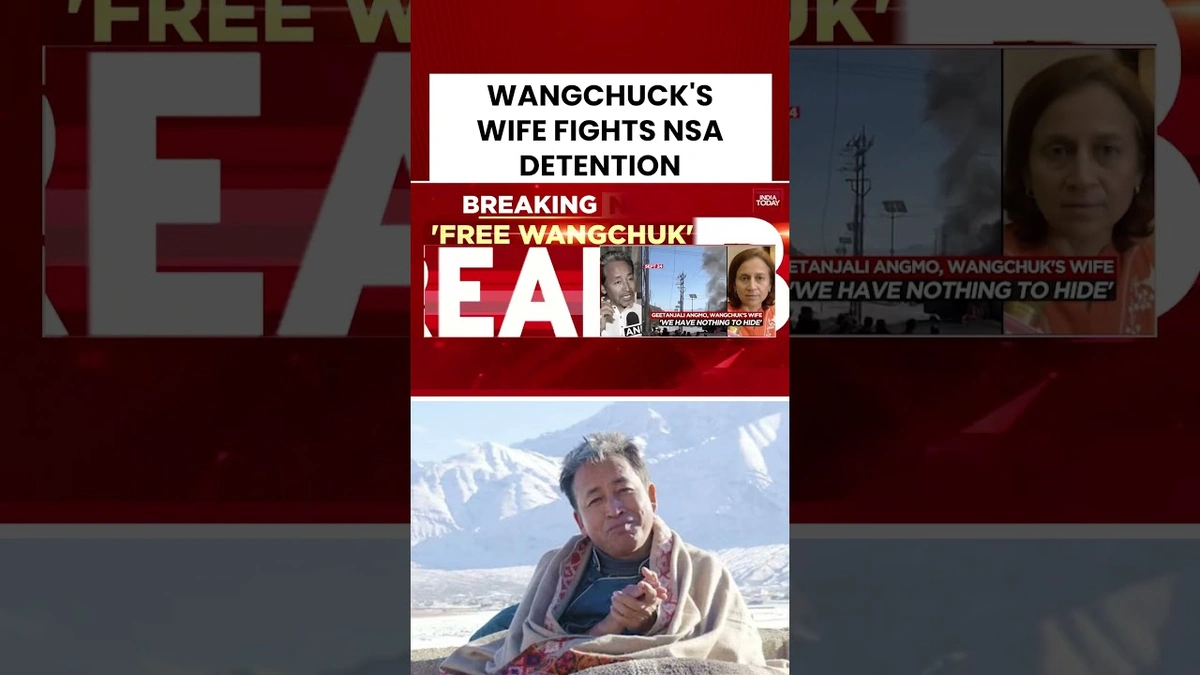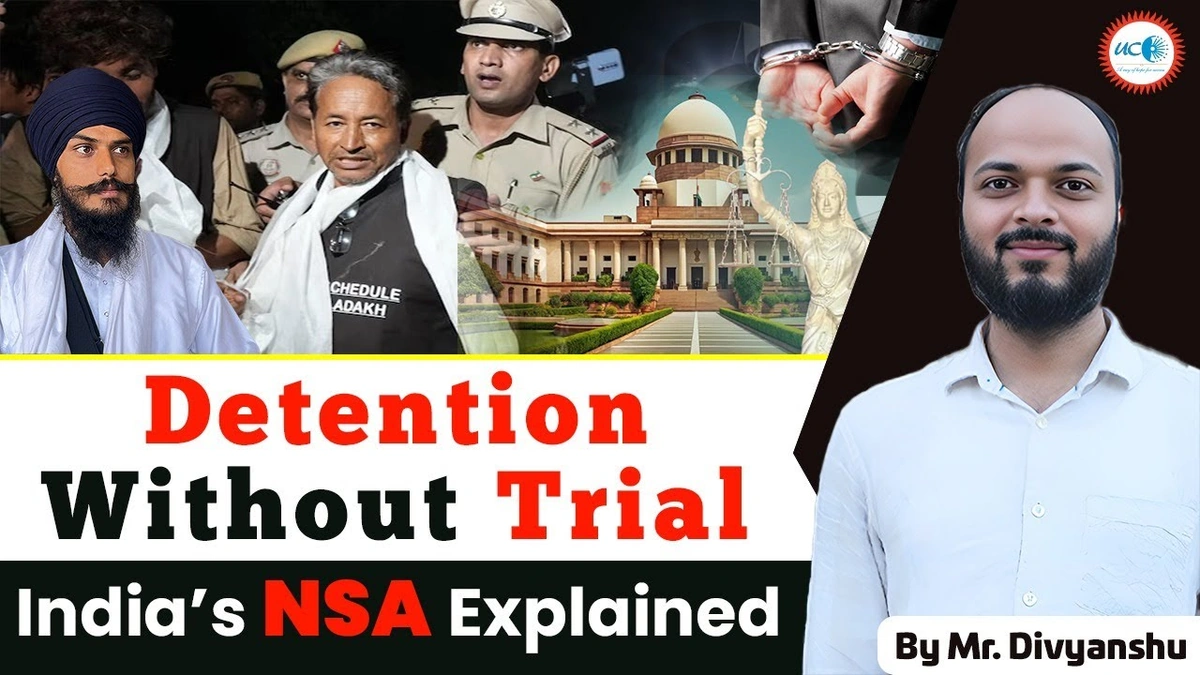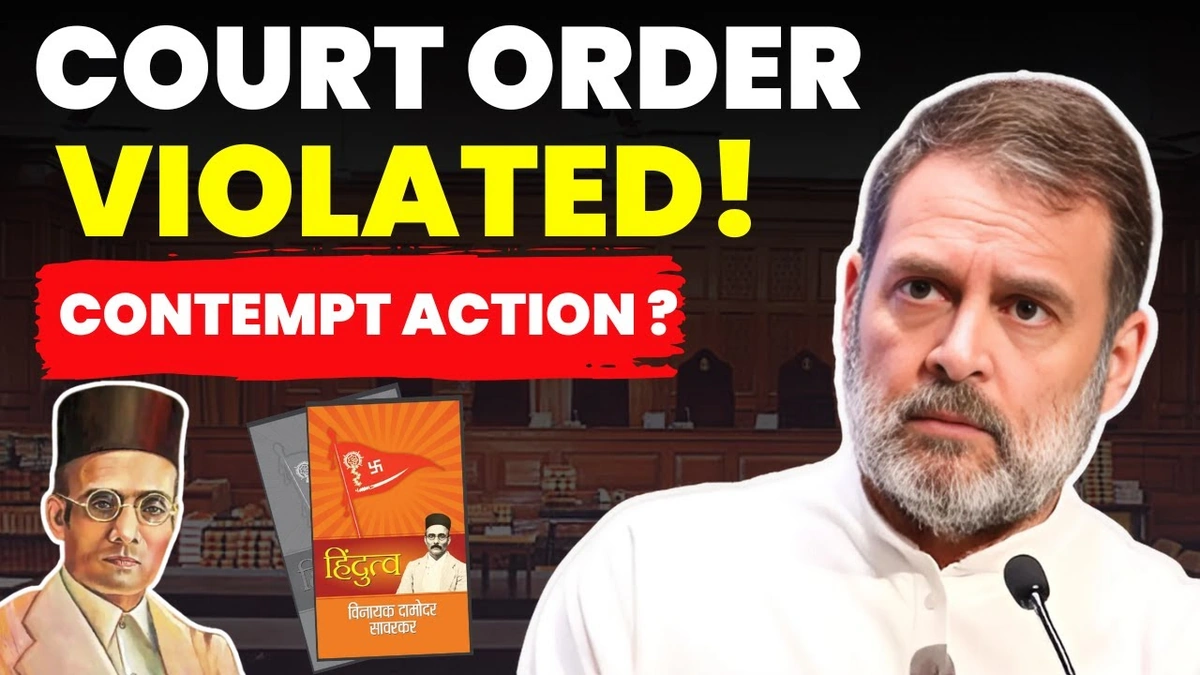Supreme Court Urges Centre to Consider Sonam Wangchuk’s Wife’s Appeal Against Husband’s NSA Detention
The Supreme Court has recently asked the central government to consider the appeal made by the wife of Sonam Wangchuk, the renowned education reformer and innovator from Ladakh, regarding his detention under the National Security Act (NSA). Now, here’s the thing – this isn’t just another news item; it’s a complex situation involving free speech, national security, and the anxieties of a region undergoing significant change. Let’s dive in and understand why this matters.
The “Why”: Understanding the Implications of NSA Detention

So, why should you care about the NSA detention of Sonam Wangchuk? Well, it touches upon several crucial aspects of Indian democracy and governance. The National Security Act , a law that allows preventive detention, is often debated for its potential to curb dissent and freedom of expression. It’s a powerful tool, and its use, or perceived misuse, can have significant ramifications for civil liberties. But, the government uses this tool with caution. Or so they say.
Let me rephrase that for clarity. This case highlights the tension between the state’s need to maintain order and the individual’s right to express their views – especially in sensitive regions like Ladakh, which borders both Pakistan and China. What fascinates me is how the judiciary balances these competing interests. The Supreme Court’s intervention signals a careful approach, ensuring that due process is followed and that the reasons for detention are thoroughly examined. According to Article 22 of the Indian Constitution, safeguards are in place to protect individuals from arbitrary arrest and detention; the court’s role is to ensure these safeguards are effectively implemented.
The Backdrop | Ladakh’s Changing Landscape and Potential Security Concerns
Ladakh, with its strategic importance, has been undergoing rapid changes – both economically and politically – since it was declared a Union Territory. This has brought about new opportunities, but also new anxieties. There are concerns about land use, environmental degradation, and the impact on local cultures. Add to this the ever-present geopolitical tensions with neighboring countries, and you have a complex situation ripe for potential unrest. Ladakhi issues become hot-button items very quickly.
It is this context that makes Wangchuk’s case so important. He has been a vocal advocate for environmental protection and sustainable development in the region. But, some might view this as being critical of government policies, especially considering the sensitive security situation. It also touches on the topic of sedition, something the government often considers. The government often frames it as the sedition law .
The Appeal Process | What Happens Now?
The Supreme Court’s urging the Centre to consider the appeal means that the government must now review the grounds for Wangchuk’s detention. This involves examining the evidence presented by the authorities and assessing whether the detention is justified under the provisions of the NSA. It’s not a rubber stamp; the government has to demonstrate that there are legitimate security concerns warranting such action. But, it can still be a very dangerous situation.
And, this is where the legal intricacies come into play. The NSA allows for preventive detention based on the apprehension that a person might act in a manner prejudicial to the security of the state. The key word here is ‘apprehension’ – it’s not about past actions but about potential future threats. The government has to convince the court that such an apprehension is reasonable and based on credible information.
The Broader Debate | Balancing Security and Freedom of Expression
Wangchuk’s case is not an isolated incident. It’s part of a larger debate about the use of preventive detention laws in India and their impact on fundamental rights. Civil rights activists and organizations have long argued that such laws are often used to stifle dissent and suppress legitimate forms of protest. The government defends them as necessary tools to maintain law and order and protect national security. However, there is a very fine line to be made in this situation.
A common mistake I see people make is viewing this as a simple black-and-white issue. It’s not. There are genuine security challenges in many parts of India, and the state has a responsibility to address them. But, that responsibility must be exercised in a manner that respects fundamental rights and ensures accountability. As political situations continue to evolve, it’s essential to consider the impact on our constitutional rights.
Preventive detention , under the NSA, allows authorities to detain individuals who are deemed a threat to national security or public order, even without a formal charge or trial. This power is intended to prevent potential crimes before they occur, but it also raises concerns about the potential for abuse. The crucial question is always this: Has it been done?
The Future | What Does This Mean for Ladakh and Beyond?
The outcome of Wangchuk’s case will have implications not just for him personally, but also for the broader discourse on freedom of expression and dissent in India. It will set a precedent for how the courts balance security concerns with individual rights, especially in sensitive regions. And it serves as a reminder that even in the face of perceived threats, the principles of democracy and the rule of law must be upheld. Remember, broader economic conditions often influence political stability.
What initially thought was straightforward, soon became an understanding that the decision has the potential to influence the way that the government handles cases involving dissent, especially in regions with complex security dynamics. It reinforces the importance of judicial oversight in safeguarding civil liberties, ensuring that the state’s power is not used arbitrarily or to silence legitimate voices.
FAQ Section
Frequently Asked Questions
What exactly is the National Security Act (NSA)?
The NSA is a law that allows the government to detain individuals without charge for up to 12 months if they are deemed a threat to national security.
Why was Sonam Wangchuk detained under the NSA?
While the exact reasons haven’t been publicly disclosed, it’s likely related to his public statements and activism concerning environmental and developmental issues in Ladakh.
What does the Supreme Court’s urging the Centre to consider the appeal mean?
It means the government must review the detention order and provide a justification for it, ensuring due process is followed.
Could Wangchuk be released soon?
It depends on the government’s review and the court’s assessment of the evidence presented. There’s no guarantee, but the Supreme Court’s involvement adds scrutiny to the process.
What are the implications for freedom of expression in Ladakh?
The case highlights the challenges of balancing security concerns with the right to dissent, especially in sensitive border regions. This is often seen as the balancing act .
What is preventive detention?
Preventive detention is the practice of imprisoning someone to prevent them from committing future crimes, rather than punishing them for past offenses.
The long and short of it is that Wangchuk’s case forces us to confront some uncomfortable questions about the balance between security and freedom. It’s a debate that’s not going away anytime soon.













